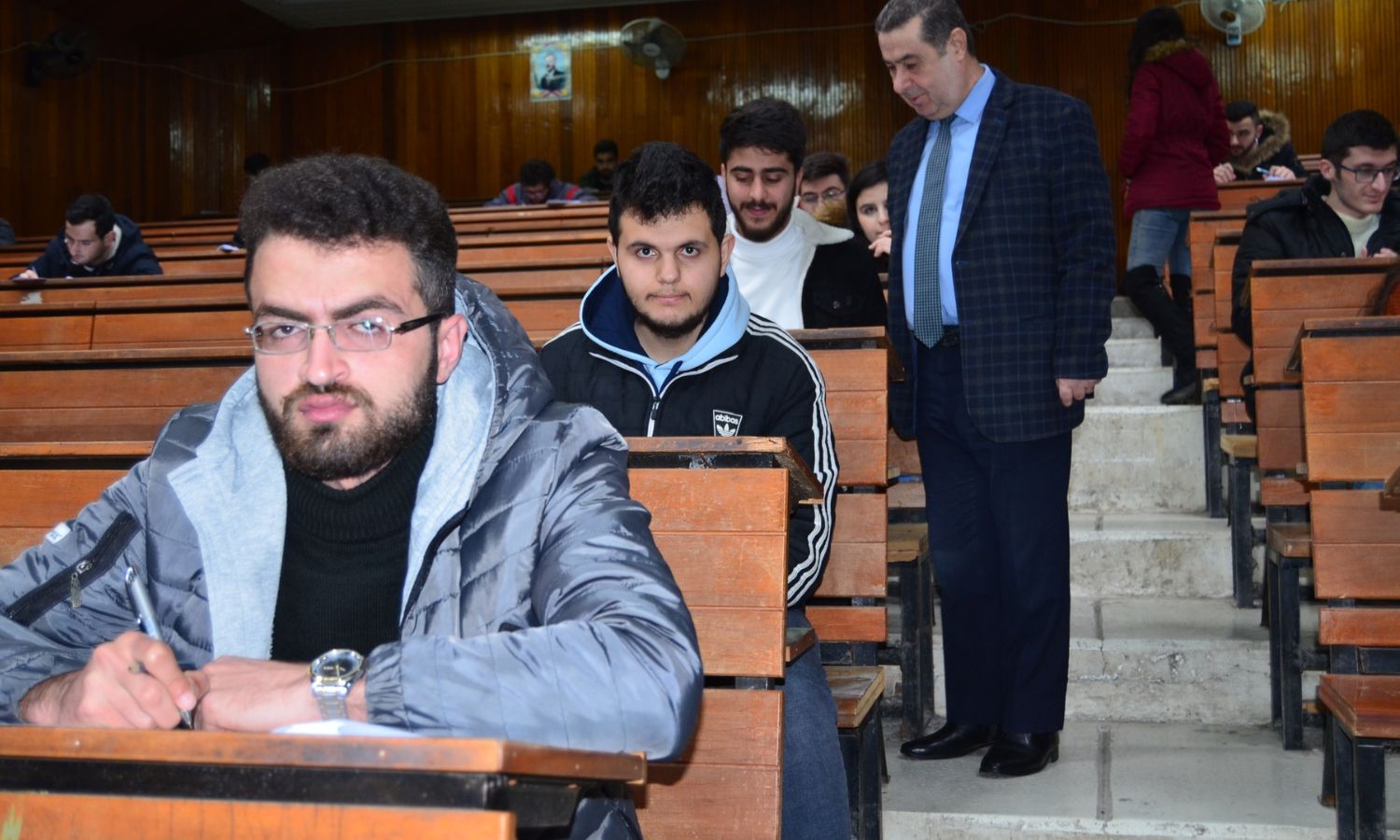



Latakia – Linda Ali
Wisam, a 21-year-old third-year student of architectural engineering at Tishreen University in Latakia, has faced significant pressure due to the ongoing disputes between his parents over economic conditions, while the ambitious young man tries to use these pressures as a motivation to succeed and graduate, and then board the first plane, taking him far away from his afflicted country, as he put it.
Wisam, who lives in the Bsnada suburbs of Latakia city, said that it is impossible for a day to pass without a dispute over money between his parents, and hearing the nightly lament, “We have nothing to eat tomorrow,” while he tries to focus on preparing some of the projects required by his studies.
The young man, whose daily allowance does not exceed the transportation fees, cannot remember the last time he bought new clothes. He tries to avoid feeling embarrassed in front of his peers for wearing the same outfit almost daily, “trousers and a shirt and jacket from second-hand clothes markets,” is all he has, despite having received promises from his family of buying new clothes during the citrus harvest season. However, his family’s agricultural season suffered major losses due to the low prices and they barely got enough money to buy home supplies.
Although he learned design to find a job opportunity to help him, he faced a significant problem due to the unavailability of a laptop, as he said, and added that it is “next to impossible” to secure its price, which exceeds eight million Syrian pounds at the minimum (1 US dollar equals 14,650 Syrian pounds).
Wisam’s situation reflects the poverty and the economic and living crises that the Syrian citizen grapples with to secure the simplest needs. His case is an example of the widespread desire to emigrate among the student population, as reflected by the official statistics that are released periodically, in addition to problems faced by the students that drain their effort and time amidst a deteriorating educational reality.
Nibal, a 22-year-old fourth-year student at the Faculty of Medical Engineering, clings to the small charger that her family received in the relief aid as they were affected by the earthquake, and she hides it away from reach, as it is her only means to study in the evening after the home battery’s lifespan ended, and the family could not afford to buy a new one due to its cost which starts from 400,000 pounds for a very small type.
The young woman, trying to focus on her studies, said that she feels very ashamed in front of her father, a taxi driver, and her mother, a government employee, when she asks either one of them for money to buy printed lecture materials and avoids sharing with them her desire to buy new clothes since the situation does not allow it, and the family barely manages to get food.
The average living costs in areas under the regime’s control exceed 10.3 million Syrian pounds, with the minimum cost of living at 6.5 million pounds, while the minimum government salaries are about 279,000 Syrian pounds.
Samia (pseudonym), a student at the Faculty of Information Engineering at Tishreen University, trained in the profession of nail decoration, until she mastered it and began to work in it; she contracted with several beauty salons in Latakia city, to come to them upon request or based on previously set appointments.
The good returns from the profession helped Samia complete her studies, as she said, and mentioned that she only has one year left to graduate, and as soon as she gets her certificate, she will travel to Iraq to work in her new profession, far away from her university major as a first step.
Samia added that her plans include traveling to Iraq first, and saving enough money to travel to Europe, as perhaps there she might have the opportunity to work in her field of specialization. In Syria, she would not be able to work with it because the returns are very bad and do not meet the requirements of life.
The young woman does not hide her sadness, especially since she entered the university specialization she loves, but she never thought that she would end up sitting at the feet of girls to decorate their nails for them, as she said.
Students in Syria in general face major challenges, such as electricity rationing, poverty, and psychological pressures resulting from parents’ inability to secure the needs of their student children.
Many students also have to miss their universities sometimes, due to not having enough money for transportation fees, which could reach 8,000 Syrian pounds per day if the student lives in the countryside, and the pressure increases more on families with two or more children studying at the university.
Brain drain in Syria has become an increasingly evident phenomenon with time, especially doctors, as Dr. Khabat Youssef from the National Maternity Hospital told the local al-Watan newspaper, most of the graduate doctors are ready to sell their real estate properties in order to travel.
In April 2023, the website Global Economy, specializing in studying the economic prospects of countries, mentioned that Syria topped the Arab countries in brain drain in 2023 with a rate of 8 out of 10 points.
if you think the article contain wrong information or you have additional details Send Correction